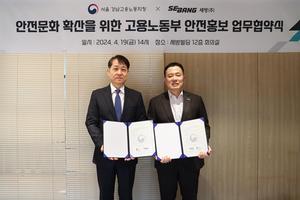 |
Agriculture is something that cannot be separated from our lives. It impacts our society in various ways by providing human beings with numerous necessities. Even though it benefits our lives with such as food and raw materials, we must not overlook the amount of pollution caused by agricultural activities.
According to the Glossary of Environment Statistics, agricultural pollution comprises liquid and solid wastes from all farming activities, including run-off from pesticide and fertilizer use and feedlots; erosion and dust from plowing; animal manure and carcasses; and crop residues and debris. One example of agricultural pollution could be the amount of CO2 it produces. According to the CAIT Climate Data Explorer via Climate Watch, we collectively emit around 50 billion tonnes of CO2e globally each year, and food cultivation is responsible for about 1/5 of all greenhouse gas emissions.
To resolve these problems, there have been countless experiments from humans to make agriculture environment-friendly, but only a few of it has had drastic result till a system called aquaponics was introduced. Aquaponics is a sustainable process that combines agriculture and marine life, which involves growing fish and plants together within the same environment.
A recent project that utilizes this system founded by a group of people in South Korea is called the V.Farm. Founded in 2021, V.Farm combines the advantages of an aquaponics system with a vertical farming system to raise vegetables and aquatic animals more efficiently and sustainably. Aquaponics reduces soil pollution by not using pesticides and fertilizers, and crops can be grown regardless of the weather, resulting in increased production and stable supply.
Our responsibility is to protect and preserve this planet for future generations. It is necessary to keep strategizing for innovative ideas such as this to save the earth and initiating the V. Farm system can be a vast starting step to improving world hunger and land shortage without harming the environment.
*Glossary of Environment Statistics, Studies in Methods, Series F, No. 67, United Nations, New York, 1997.
천승후 강남포스트 학생기자 webmaster@ignnews.kr
<저작권자 © 강남포스트, 무단 전재 및 재배포 금지>

 고용노동부 강남지청-세방(주), 안전문화 확산 위한 업무협약 체결
고용노동부 강남지청-세방(주), 안전문화 확산 위한 업무협약 체결


